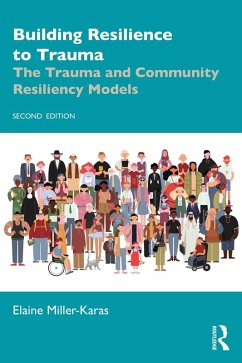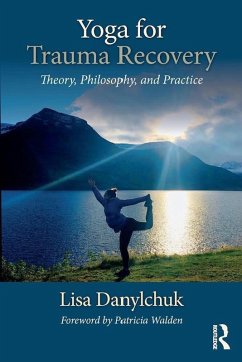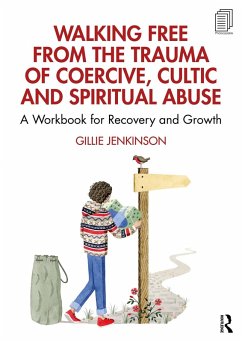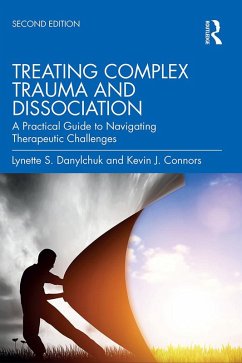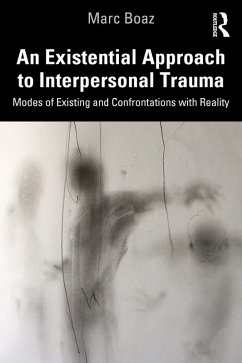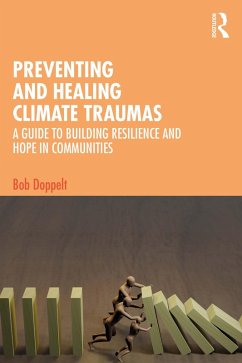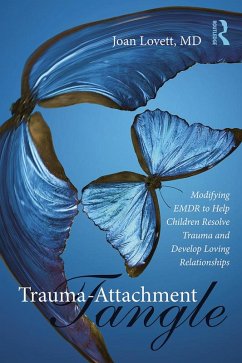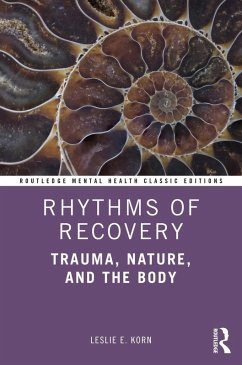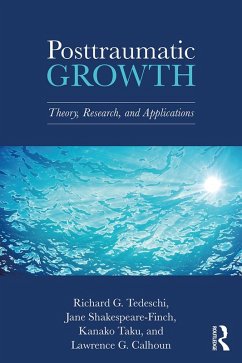
Building Resilience to Trauma (eBook, ePUB)
The Trauma and Community Resiliency Models

PAYBACK Punkte
14 °P sammeln!
During and after a traumatic experience, survivors experience a cascade of physical, emotional, cognitive, behavioral, relational, and spiritual responses that can make them feel unbalanced and threatened. The second edition of Building Resilience to Trauma explains common responses from a biological perspective, reframing the human experience from one of shame and pathology to one of hope and biology. Using two evidence-informed models of intervention that are trauma-informed and resiliency-informed-the Community Resiliency Model (CRM) and the Trauma Resiliency Model (TRM)-chapters distill co...
During and after a traumatic experience, survivors experience a cascade of physical, emotional, cognitive, behavioral, relational, and spiritual responses that can make them feel unbalanced and threatened. The second edition of Building Resilience to Trauma explains common responses from a biological perspective, reframing the human experience from one of shame and pathology to one of hope and biology. Using two evidence-informed models of intervention that are trauma-informed and resiliency-informed-the Community Resiliency Model (CRM) and the Trauma Resiliency Model (TRM)-chapters distill complex neuroscience into understandable concepts and lay out a path for fostering short- and long-term healing.
CRM develops natural leaders who share wellness skills throughout communities as primary prevention, and TRM focuses on training mental health professionals to reprocess traumatic experiences. Studies have demonstrated that the models' use leads to significant reductions in depression and anxiety, and both models also lead to increases in well-being. The models restore balance after traumatic experiences and can be used as tools to cultivate well-being across cultures and abilities throughout the lifespan.
Program cosponsors have included the United Nations, Emory University's Center for Contemplative Science and Compassion-Based Ethics, the Victims and Survivors Network of Northern Ireland, PACES Connection, the International Transformational Resilience Coalition, the Adventist Disaster Relief Agency International, Wake County School System, and the State of Washington Police Commission.
CRM develops natural leaders who share wellness skills throughout communities as primary prevention, and TRM focuses on training mental health professionals to reprocess traumatic experiences. Studies have demonstrated that the models' use leads to significant reductions in depression and anxiety, and both models also lead to increases in well-being. The models restore balance after traumatic experiences and can be used as tools to cultivate well-being across cultures and abilities throughout the lifespan.
Program cosponsors have included the United Nations, Emory University's Center for Contemplative Science and Compassion-Based Ethics, the Victims and Survivors Network of Northern Ireland, PACES Connection, the International Transformational Resilience Coalition, the Adventist Disaster Relief Agency International, Wake County School System, and the State of Washington Police Commission.
Dieser Download kann aus rechtlichen Gründen nur mit Rechnungsadresse in A, B, BG, CY, CZ, D, DK, EW, E, FIN, F, GR, HR, H, IRL, I, LT, L, LR, M, NL, PL, P, R, S, SLO, SK ausgeliefert werden.




